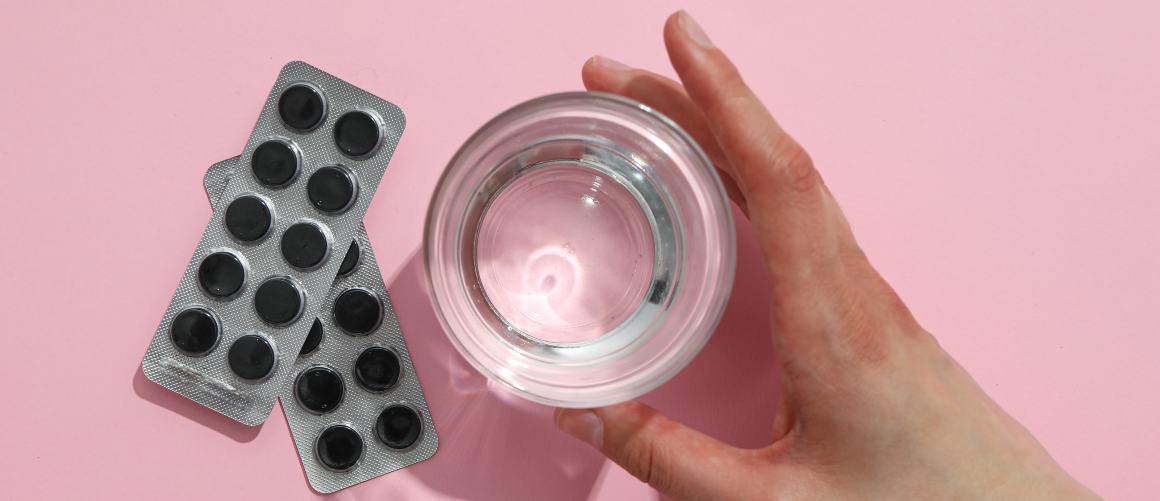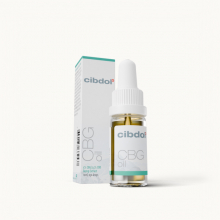Does CBG interact with medications?
Published:
As interest grows in the therapeutic potential of CBG oil and other cannabis-derived products, a key question users and medical professionals have is whether CBG causes any interactions with pharmaceutical medications.
Contents:
- Overview of Cannabigerol (CBG)
- Do Cannabinoids Like CBG Interact With Medications?
- Medication Classes Most Likely to Interact with CBG
- Other Medications that May Interact with CBG
- Guidance for Using CBG With Prescription Medications
-
Frequently Asked Questions About CBG-Medication Interactions
- What happens if you mix CBG oil with antidepressants like Zoloft?
- Is it safe to take CBG oil if you take blood thinners?
- Can CBG oil be taken with blood pressure medications?
- Does CBG oil interfere with birth control pills or other hormones?
- Is it safe to combine CBG oil with OTC pain meds like NSAIDs?
- Does CBG interact with medications? Conclusion
- Resources used to write this article
Understanding how CBG may impact the activity and side effects of prescription and over-the-counter drugs can help inform safe usage and avoid potentially hazardous combinations.
In this comprehensive guide, we’ll analyze the current scientific evidence on how CBG may interact with various categories of medicines and provide research-backed tips for using CBG cautiously alongside medications when appropriate.

Overview of Cannabigerol (CBG)
First, a brief primer on CBG itself. Cannabigerol (CBG) is a non-intoxicating cannabinoid found in low levels in most cannabis and hemp plants. It is considered a “minor cannabinoid” compared to CBD and THC which typically occur in higher concentrations.
However, specialized breeding and extraction techniques now allow for the production of CBG-dominant hemp flower. When extracted into oils, isolates, or other products, CBG offers a variety of potential therapeutic effects, including:
- Reduced pain and inflammation
- Neuroprotective qualities
- Anti-anxiety properties
- Antibacterial effects
- Improved sleep quality
- Enhanced mood
- Intestinal benefits
But as a relatively new supplement, questions remain about how taking CBG could potentially impact other medications a person may be taking. Let’s analyze what the research says thus far.
Do Cannabinoids Like CBG Interact With Medications?
Yes, research shows that cannabinoids including THC, CBD, and CBG do interact with certain classes of pharmaceutical medications. A few key points about cannabinoid-drug interactions:
- Interactions emerge because many medications are broken down by the cytochrome P450 enzyme system in the liver – the same pathway cannabinoids are metabolized through. This can alter absorption and elimination of either substance.
- Cannabinoids also influence certain neurotransmitters and biological pathways that can impact how some medications work.
- Interactions can result in increased side effects from a medication, reduced efficacy, or changes in cannabinoid effects.
- Some major drug classes with known interactions include antidepressants, opioids, anticoagulants, antipsychotics, anticonvulsants, cardiovascular medications and others.
- CBG has not been as widely studied as CBD and THC, but likely carries similar interaction risks due to comparable mechanisms.
Overall, yes - current evidence indicates CBG does have the potential to interact with certain types of pharmaceutical medications. However, proper precautions can minimize risk.
Medication Classes Most Likely to Interact with CBG
While impacts can be complex and unpredictable, these medication classes have the highest potential risk for interactions with CBG based on current research:
- Antidepressants (SSRIs, MAOIs etc) – CBG may increase side effects like drowsiness, dizziness, agitation, or nausea. Conversely, antidepressants could reduce CBG absorption and effects.
- Opioid pain medications – CBG may increase sedation and side effects. Opioids could also diminish CBG pain relief properties.
- Blood thinners (warfarin, heparin etc) – CBG can inhibit metabolism of anticoagulants, heightening bleeding risks. CBG may also directly act as a blood thinner itself.
- Benzodiazepines and hypnotics – Both CBG and these anti-anxiety medications cause sedation. Combining can lead to excessive drowsiness and impairment.
- Immunosuppressants – CBG could theoretically inhibit immune system suppression, reducing medication efficacy. Additionally, combining CBG with immunosuppressants may increase infection risks.
If taking any of these pharmaceuticals, extra caution is warranted when using CBG. However, risk is minimized by starting with very low CBG doses and having your doctor monitor for interactions.
Other Medications that May Interact with CBG
In addition to the major drug classes above, there is moderate risk of CBG interactions with:
- Blood pressure medications
- Cholesterol drugs (statins)
- Anticonvulsants and seizure drugs
- Chemotherapy agents
- Antipsychotics and mood stabilizers
- Stimulants like Adderall
- Steroids and corticosteroids
- Proton pump inhibitors
And drugs metabolized through the CYP450 liver enzyme pathways, which include:
- Many antidepressants
- Opioid analgesics
- Beta blockers
- Calcium channel blockers
- Antihistamines
- Antibiotics
- Anti-anxiety meds
- Antifungals
- HIV antivirals
This covers most, but not all, known and theoretical medication interactions with CBG. Consult your doctor regarding any other medications you take.
Guidance for Using CBG With Prescription Medications
While risks exist, you can minimize chances of problematic CBG-drug interactions by following this medical guidance:
- Inform your doctor about CBG use - Never use CBG alongside medications without your physician's knowledge. Make sure they are aware of all supplements you take.
- Start very low - Titrate from just 1-2 mg CBG per dose and increase slowly only as tolerated when taking medications.
- Time it right - Take CBG and medicines as far apart as possible to avoid overlapping effects. For example, use CBG in morning and medications at night.
- Monitor closely - Watch closely for changes in medication effects or side effects and report to your doctor. Track CBG responses too.
- Skip sporadic CBG use - With medications, it's best to avoid sporadic CBG use which can lead to fluctuating medication levels. Maintain steady daily CBG.
- Avoid CBD - CBG and CBD together are more likely to compete for metabolism pathways. Using CBG alone is ideal.
While using any CBG with pharmaceutical drugs warrants caution, your doctor can help guide safe usage based on your health status and needs if potential benefits outweigh the risks in your case. Never alter prescribed medication regimens without medical oversight.
Frequently Asked Questions About CBG-Medication Interactions
Here are answers to some top questions about how CBG may interact with common medications:
What happens if you mix CBG oil with antidepressants like Zoloft?
Combining CBG oil with SSRIs like Zoloft could potentially amplify side effects like drowsiness, nausea, and dizziness. CBG could also decrease Zoloft absorption. Starting with very low CBG doses reduces risks.
Is it safe to take CBG oil if you take blood thinners?
CBG oil with blood thinners like warfarin does carry risks of increasing bleeding by inhibiting warfarin metabolism. Combining requires extreme care and close medical monitoring. Your doctor can advise if appropriate given your health status.
Can CBG oil be taken with blood pressure medications?
Yes, but close monitoring is still recommended. CBG may boost the hypotensive effects of blood pressure meds, causing adverse drops. Dose adjustments of either medication may be needed. Don’t alter any Rx dose without doctor approval.
Does CBG oil interfere with birth control pills or other hormones?
Very limited data exists on CBG and birth control pills. However, hormones are metabolized via the CYP-450 pathway like CBG, so there is a theoretical interaction risk. Discuss CBG use with your OB-GYN if taking hormonal birth control.
Is it safe to combine CBG oil with OTC pain meds like NSAIDs?
Using CBG oil alongside OTC NSAID pain relievers carries a low interaction risk, but can potentially heighten side effects like bleeding or ulcers in some cases. Monitor yourself closely and advise your doctor of use.
Does CBG interact with medications? Conclusion
Current evidence and pharmacology principles indicate significant potential for CBG to interact with many common pharmaceutical medications based on overlapping metabolism and effects on biological pathways like platelet function, neurotransmitters, and cytochrome P450 enzymes.
However, risks are substantially minimized when using professional medical guidance, very conservative CBG dosing, and close monitoring for changes in effects of either substance.
Never use CBG alongside prescription or OTC medications without your physician's knowledge. While interactions clearly exist, data thus far suggests they can often be managed successfully under proper medical care for many patients. But every individual's risks and needs should be fully evaluated first.
With cautious and informed use alongside conventional medication treatments when warranted, CBG may still be a therapeutic option for some. But always put safety first and discuss CBG use with your doctor.
Resources used to write this article
- Rong, C., Carmona, N. E., Lee, Y. L., Ragguett, R. M., Pan, Z., Rosenblat, J. D., ... & McIntyre, R. S. (2018). Drug-drug interactions as a result of co-administering Δ9-THC and CBD with other psychotropic agents. Expert opinion on drug safety, 17(1), 51-54. https://doi.org/10.1080/14740338.2017.1397128
- Brown, J. D., & Winterstein, A. G. (2019). Potential adverse drug events and drug–drug interactions with medical and consumer cannabidiol (CBD) use. Journal of clinical medicine, 8(7), 989. https://doi.org/10.3390/jcm8070989
- Grayson, L., Vines, B., Nichol, K., & Szaflarski, J. P. (2018). An interaction between warfarin and cannabidiol, a case report. Epilepsy & Behavior Case Reports, 9, 10-11. https://doi.org/10.1016/j.ebcr.2017.10.001
- Yamaori, S., Ebisawa, J., Okushima, Y., Yamamoto, I., & Watanabe, K. (2011). Potent inhibition of human cytochrome P450 3A isoforms by cannabidiol: role of phenolic hydroxyl groups in the resorcinol moiety. Life sciences, 88(15-16), 730-736. https://doi.org/10.1016/j.lfs.2011.02.017
- Iffland, K., & Grotenhermen, F. (2017). An update on safety and side effects of cannabidiol: a review of clinical data and relevant animal studies. Cannabis and cannabinoid research, 2(1), 139-154. https://doi.org/10.1089/can.2016.0034















